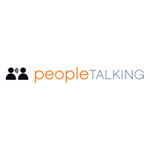“I never trust people’s assertions. I always judge of them by their actions.”
Ann Radcliffe, The Mysteries of Udolpho, 1764
 While investment production and performance is important, they’re not as important to affluent clients as before. Research shows that having a trustworthy and competent financial advisor to help guide them toward new life goals in retirement is just as important as making sure they don’t outlive their money.
While investment production and performance is important, they’re not as important to affluent clients as before. Research shows that having a trustworthy and competent financial advisor to help guide them toward new life goals in retirement is just as important as making sure they don’t outlive their money.
While the value of a trust may seem obvious, its importance in the face of the growing retirement income market is often overlooked by advisors.
Trust rests on three levels:
- Technical competence and know-how (“Do I trust that you know what you’re doing?”)
- Trust in ethical conduct and character (“Do I trust you not to take money from me?”)
- Trust in emotional intelligence and maturity (“Do I trust you with information about me and my family and to guide us objectively?”)
It is ultimately a client’s unshakeable trust in an advisor’s ability to make tough decisions on their behalf that cements the relationship. Think of the, “If anything ever happened to me …” conversation clients have with their trusted advisors. The client maintains that if anything were to happen to them, the advisor would be the first person the surviving partner would call.
Investing has become so complicated that many do-it-yourselfers are fleeing their laptops and home offices to seek your guidance. They may have suffered self-inflicted injuries in the market downturn that began in 2008 and their radar is working to ensure they don’t lose more money. But they need to trust you completely before they will invest with you and no amount of new prospect engagement, distribution or brand differentiation strategies will change this. (For a useful overview of changing investor expectations in the vast retirement income market, please visit: http://www.deloitte.com/assets/Dcom-UnitedStates/Local%20Assets/Documents/us_fsi_MiningRetirementIncomeMarket_May09.pdf)
Consider the business owner who wants to create wealth outside his or her business to avoid relying on their factory sales to see them through retirement. Many are reluctant to relinquish control of their financial destinies to others – such as you, or to explore new paths to diversifying and preserving their wealth. They need to trust you as they trusted an employee who worked for the family business for 30 years. The trust your clients have in you really is your most valuable asset and integrity is in the eye of the beholder.
Image courtesy of lemonade at FreeDigitalPhotos.net
